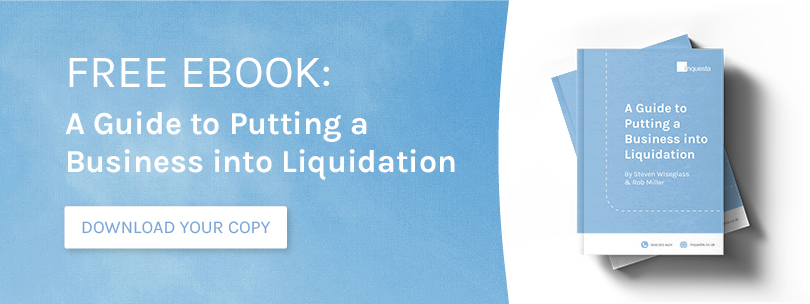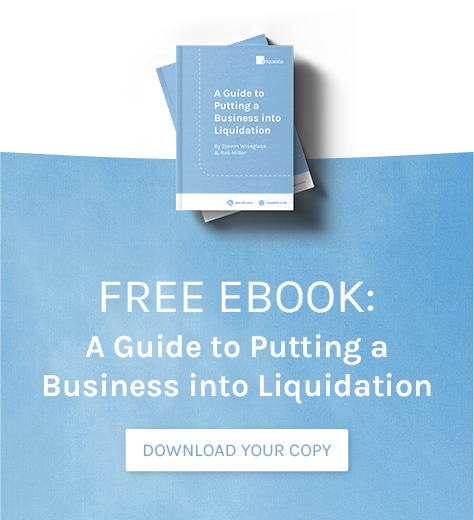If you are struggling to cope with your debt, it is first of all important to understand that you are not alone. After all, circumstances can change to make what was once a manageable amount of money owed turn into a real problem. This can be true in an individual’s personal and business capacity.
A full and final settlement offer (also known as a debt settlement offer) can be an important method of making your debt a lot more manageable, and give you the breathing space you need. Should you decide to follow this path, you will first of all need to work out how much to offer creditors in full settlement. This is because you should never overstretch your capabilities, as this could have very serious consequences further down the line.
What does Full and Final Settlement Mean?
Before we explain how much to offer creditors in full settlement, it is important to understand what does full and final settlement actually mean. Put simply, it is a way of repaying what you owe (or a proportion of your debt) in a lump sum and stop further action from your creditors.
A full and final settlement offer will typically come about if you have received a large, lump some of money. This can either be from a lottery win, inheritance, a gift or the sale of property – amongst other things.
Depending on how much you received, it may be possible for you to pay off everything you owe and become debt-free. If this is not the case, you can make a full and final settlement offer to cover a portion of what you owe in return for your creditors ‘writing off’ the rest of your debt.
We have covered more about the basics of a settlement order in a previous blog.
How Much to Offer Creditors in Full Settlement
Now that you understand what full and final settlement means, the next point to tackle is how much to offer creditors in full settlement. The exact answer to this depends entirely on your own personal circumstances, such as how much you owe, how many creditors you have, and what the value of your lump sum actually was.
That being said, there are a few pointers that you should be aware of. For example, if you owe money to more than one creditor, it is a good idea to work out how you are going to distribute your funds fairly.
The creditor that is owed the most amount of money should ideally receive the largest share and so-on. This type of approach is known as a pro-rata offer. As part of your decision making process, it is important to make sure you are totally honest with your creditors about how much they will receive, and what proportion of your lump sum this represents.

Here is a potential way of working out how much to offer creditors in full settlement:
- Multiply the lump sum amount by each debt you owe
- Divide this by the amount you owe all creditors
- This equates to the amount you should offer that particular creditor
Let us say you have a lump sum of £2,500 and owe £2,000 to your credit card company, £1,500 to your bank and £500 to a payday loan company. This is how you should work out how much to offer creditors in full settlement:
- (2,500 x 2,000) ÷ 4,000 = £1,250 for the credit card company
- (2,500 x 1,500) ÷ 4,000 = £937.50 for the bank
- (2,500 x 500) ÷ 4,000 = £312.50 for the payday loan company
It is a good idea to keep a note of how much you owe and what you are going to offer each creditor in the form of a table. You may also want to feature this table in your debt settlement proposal letter, so each creditor will easily be able to determine what proportion of your lump sum they will be receiving.
Can I Make a Full and Final Settlement Offer Myself?
There is no set rule in place to say you have to enlist the services of a third-party to assist with making your settlement offer. If you have access to a lump sum, it is entirely possible for you to reach out to your creditors yourself and negotiate a settlement directly.
If you do decide to try and settle the situation yourself, you will first of all need to send your creditors a debt settlement proposal letter. This should detail exactly how much you intend to pay and when this can be done by. It is also important to explain why you are unable to pay the full amount, if you are only intending to pay a proportion of what you owe. Finally, you should ensure to get proof of postage so you have a record of when your letter was issued.
While it is entirely possible to make a full and final settlement offer on your own, it is a better idea to seek professional guidance to help you along the way. This is because the company will be able to gain a thorough understanding of your situation and assess the likelihood of your creditors accepting your offer. They can also guide you on the best way of ensuring success. Even if you would prefer to handle the actual negotiations yourself, it would be advisable to speak to a professional before offering your creditors any sums of money.
Get Expert Guidance from Inquesta
If you need some guidance on how much to offer creditors in full settlement, you can rely on Inquesta to help. We are specialists in debt management, and have amassed decades of experience in assisting clients from all walks of life.
We are even able to help if your creditors turn down your proposal and can guide you through your other options. These could include an Individual Voluntary Arrangement (IVA) or Debt Relief Order (DRO).
For more information about how Inquesta can help you, request a free consultation or contact a member of our team today.



